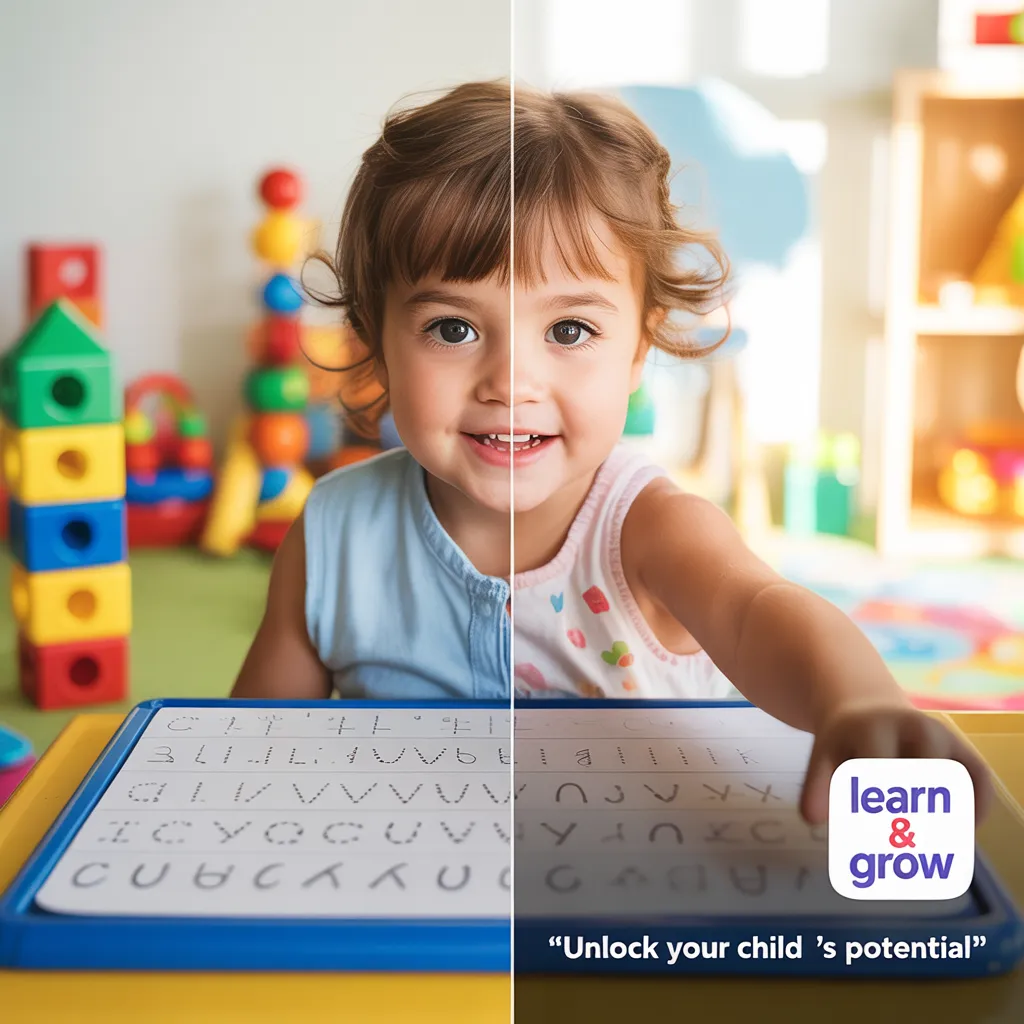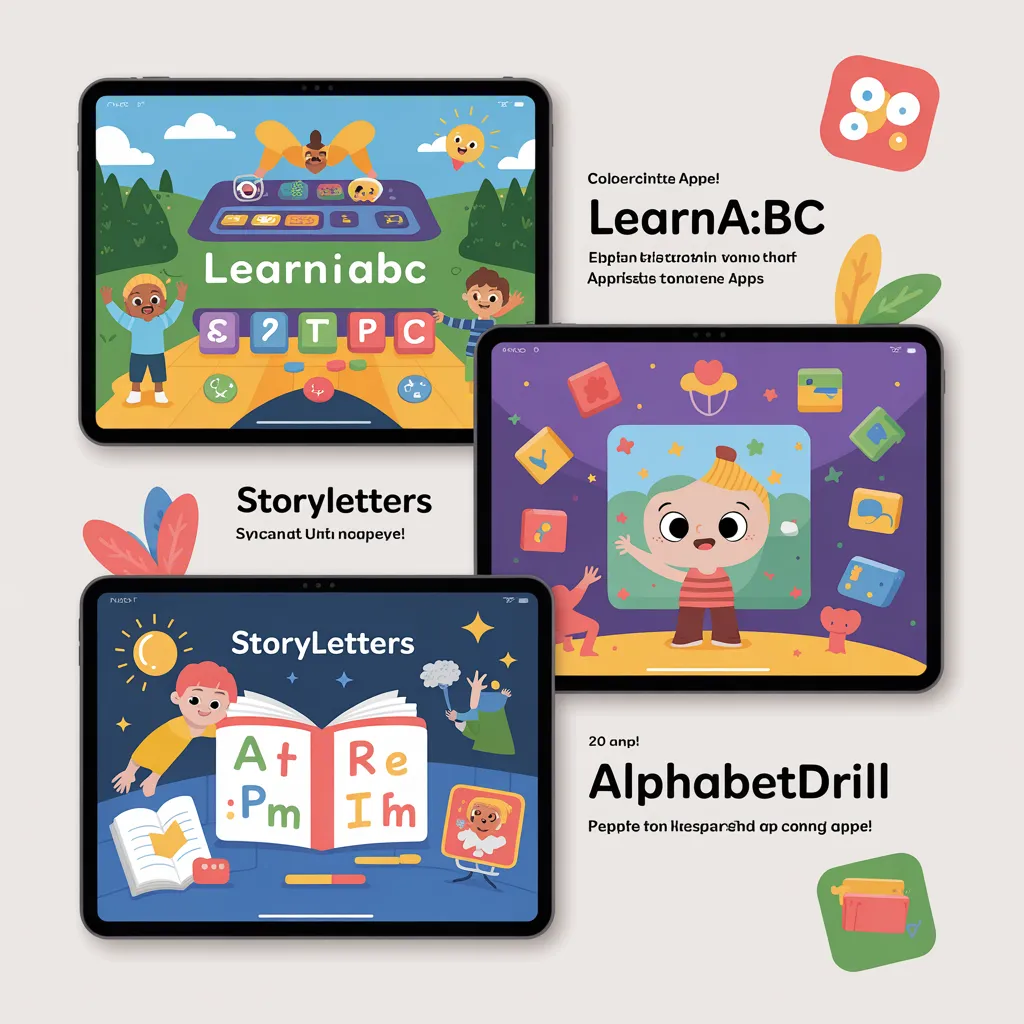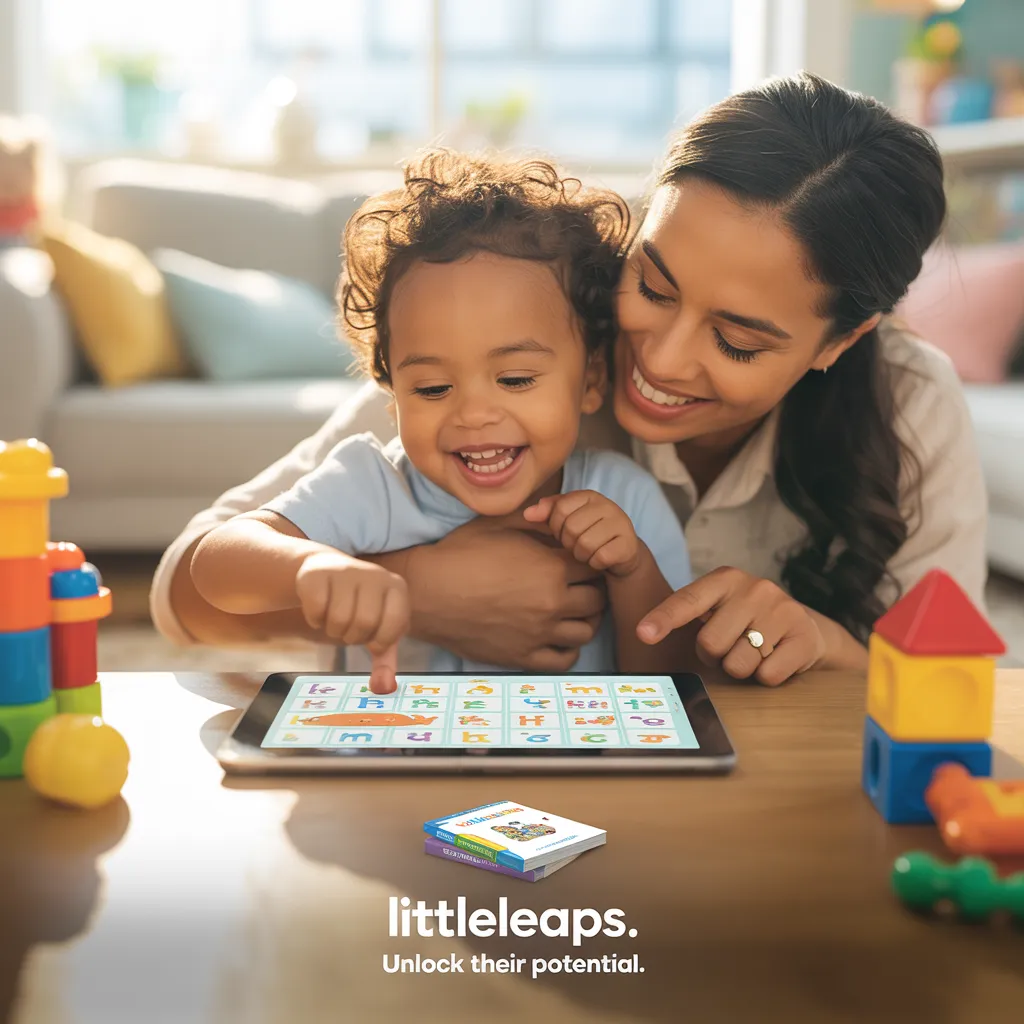In today’s digital age, educational technology has revolutionized how children learn their ABCs. Finding the best apps for alphabet learning can significantly impact a child’s early literacy development, making the process both entertaining and effective. These interactive tools transform what might otherwise be repetitive letter practice into engaging games and activities that capture young minds’ attention while building essential pre-reading skills. This article explores top-rated alphabet apps that combine educational value with child-friendly interfaces, helping parents and educators make informed choices for their little learners.

How the Best Apps for Alphabet Learning Support Early Literacy
Quality alphabet learning apps offer much more than just letter recognition. They create comprehensive learning environments that support multiple aspects of early literacy development:
Key Benefits of Using Alphabet Learning Apps
- Multisensory Learning: The best apps for alphabet learning engage multiple senses simultaneously, reinforcing letter recognition through visual, auditory, and tactile experiences.
- Personalized Pacing: Children can progress at their own speed, spending more time on challenging letters and moving quickly through those they’ve mastered.
- Immediate Feedback: Instant responses to interactions help children understand correct and incorrect answers without adult intervention.
- Gamification Elements: Points, rewards, and achievement systems motivate continued practice and celebrate progress.
- Parent Dashboards: Many premium apps include progress tracking tools so adults can monitor development and identify areas needing additional support.
Top 5 Best Apps for Alphabet Learning for Preschoolers
Younger learners benefit from apps that focus on basic letter recognition and simple phonics through playful interfaces:

1. ABC Mouse Early Learning Academy
This comprehensive learning platform includes dozens of alphabet activities within its broader early childhood curriculum. Children explore interactive letter-based games, songs, and puzzles in a reward-based environment that makes learning feel like play.
2. Endless Alphabet
Known for its charming monsters and interactive letter animations, Endless Alphabet teaches both letter recognition and vocabulary building. Each word features movable letters that transform into delightful characters when placed correctly.
3. Starfall ABCs
A trusted name in early education, Starfall provides clear, uncluttered letter learning activities with consistent phonics instruction. The app progresses naturally from individual letter sounds to simple words.
4. Khan Academy Kids
This free educational app includes alphabet learning within its holistic approach to early childhood education. High-quality illustrations and character-guided activities keep children engaged through letter discovery.
5. PBS Kids Games
Featuring beloved characters from educational television, this app includes multiple alphabet games that teach letter recognition through familiar faces and storylines children already enjoy.
Best Apps for Alphabet Learning for Elementary Students
Older beginners or children needing reinforcement benefit from these more advanced options:
1. Reading Eggs
This comprehensive reading program includes targeted alphabet modules that adapt to a child’s skill level. The structured approach works well for school-age children still mastering letter basics.
2. Phonics Genius
With over 6,000 phonics flashcards, this app offers extensive practice for students ready to connect letter recognition to reading skills through sound-letter associations.
3. Letter School
Though simple enough for preschoolers, Letter School’s satisfying animations and varied tracing methods make it equally appealing to older students who need handwriting practice alongside letter recognition.
4. Montessori Crosswords
Building on alphabet knowledge, this app helps children construct simple words using a phonics-based approach that bridges the gap between letter recognition and early reading.
5. Spelling Stage
This app introduces spelling challenges that build on alphabet mastery, helping children transition from knowing letters to using them functionally in written words.
Specialized Best Apps for Alphabet Learning
Some learning situations benefit from more targeted approaches:
1. Writing Wizard
For children struggling with letter formation, this app offers customizable tracing activities with five difficulty levels and detailed handwriting analytics for parents and teachers.
2. Dyslexia Quest
Specifically designed for children with learning differences, this app approaches alphabet learning through cognitive training exercises that strengthen the underlying skills needed for letter recognition.
3. ABC Gurus
Perfect for multilingual families, ABC Gurus teaches alphabet skills in multiple languages, allowing children to build literacy foundations in both English and a heritage language simultaneously.
4. Grammaropolis
For visual learners who benefit from storytelling, this app personifies letters and their sounds as characters in an animated world, creating memorable associations that stick with children.
5. Kiddopia
Offering a subscription-based collection of educational activities, Kiddopia includes alphabet games alongside math, creativity, and general knowledge activities for a well-rounded approach.
How to Choose the Best App for Alphabet Learning

When selecting an alphabet app for your child, consider these important factors:
- Developmental Appropriateness: Choose apps designed specifically for your child’s age and current skill level
- Learning Style Compatibility: Visual learners may prefer illustration-heavy apps, while kinesthetic learners benefit from tracing and movement activities
- Educational Foundation: Look for apps developed with input from literacy specialists or educational researchers
- Engagement Balance: The best apps maintain a healthy balance between entertainment and educational content
- Privacy Controls: Ensure the app has strong privacy protections, especially those used in educational settings
Conclusion
The best apps for alphabet learning transform what could be routine letter practice into engaging, interactive experiences that build crucial early literacy skills. Whether you’re a parent supporting at-home learning or an educator seeking classroom technology tools, today’s alphabet apps offer unprecedented opportunities to customize letter learning to each child’s needs. By selecting high-quality applications that balance educational content with engaging activities, you can help young learners build a strong foundation for reading success. Remember that even the best digital tools work most effectively when complemented with traditional reading activities and plenty of conversation about letters in the everyday world.
15 Transformative Alphabet Learning Chart Ideas to Supercharge Literacy Development
FAQ About Alphabet Learning Apps
At what age should children start using alphabet learning apps?
Most children are ready to begin exploring alphabet apps between ages 2-4, though the exact timing depends on individual development and interest. Start with brief sessions of 5-10 minutes and simple apps that focus on exploration rather than mastery.
Can alphabet apps replace traditional teaching methods?
Alphabet apps work best as supplements to, not replacements for, traditional literacy experiences like reading physical books, writing with various materials, and having conversations about letters. The most effective approach combines digital and non-digital learning experiences.
How much screen time is appropriate for alphabet learning?
Early childhood experts generally recommend limiting educational screen time to 15-30 minutes per session, with a maximum of 1 hour total daily for children ages 2-5. Brief, focused sessions often prove more effective than longer periods.
Are free alphabet apps effective, or should I invest in paid options?
Many free alphabet apps offer excellent educational content. However, paid apps typically provide more comprehensive learning experiences, better progress tracking, and fewer distractions from advertisements. Consider starting with free options and investing in paid apps for areas where your child needs additional support.
How can I reinforce alphabet learning beyond what apps provide?
Point out letters in the environment during daily activities, create alphabet scavenger hunts, use magnetic letters during play, incorporate alphabet books into bedtime routines, and discuss the sounds letters make in familiar words. These real-world connections strengthen the learning happening within educational apps.
